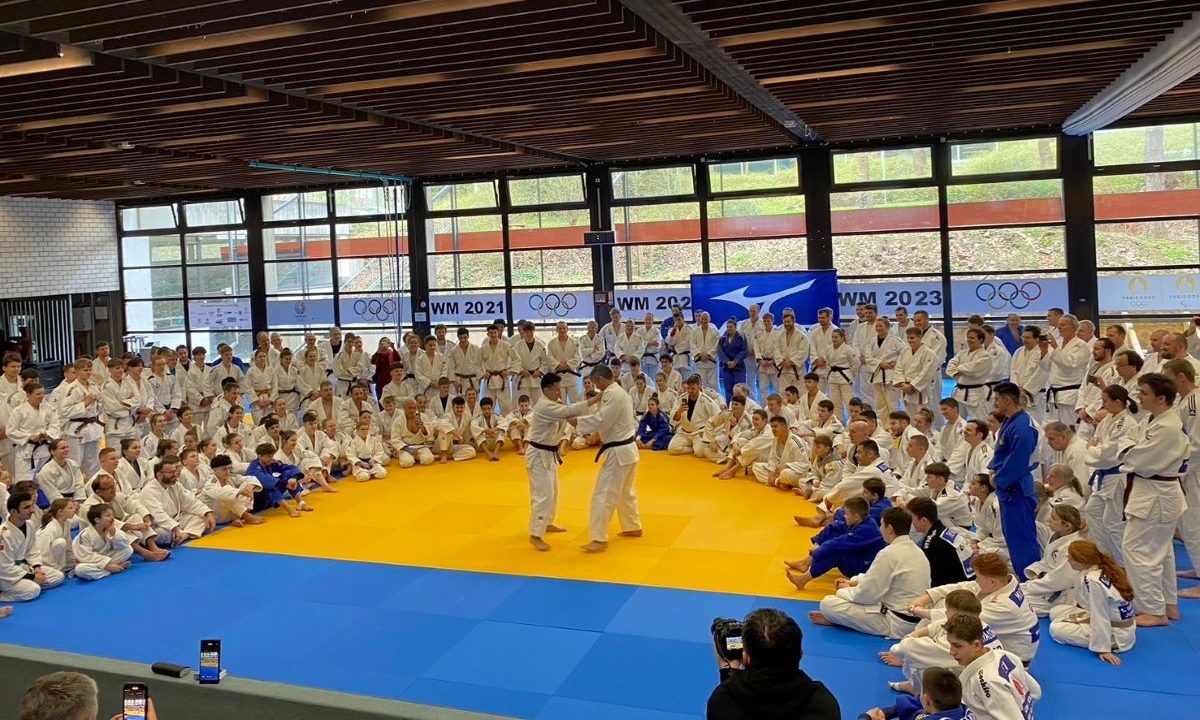
Greetings, fellow JAPAN Forward readers and friends of judo.
Here in Japan where I live, the winter cold has started to abate and spring sunlight is now pouring down on us. How are things where you live?
In this month's newsletter, I would like to share impressions from my participation in four judo clinics. They took place in three different European countries during March.
On this road trip, I visited dojo in Nice and Reims in France, Lommel in Belgium, and Cologne in Germany.
The clinics I took part in as an instructor were sponsored by the sports equipment and sportswear manufacturer Mizuno. There were around 300 participants, mostly adults, at each venue, and I believe everything went exceptionally well.
The clinic content included explanations of techniques I often used when I was competing. Especially the uchi-mata (inner-thigh throw). We also shared hints on how to maintain the proper mindset.
Each session lasted two to three hours, but all the participants listened enthusiastically to the instructions. Time seemed to fly by during each of the sessions.
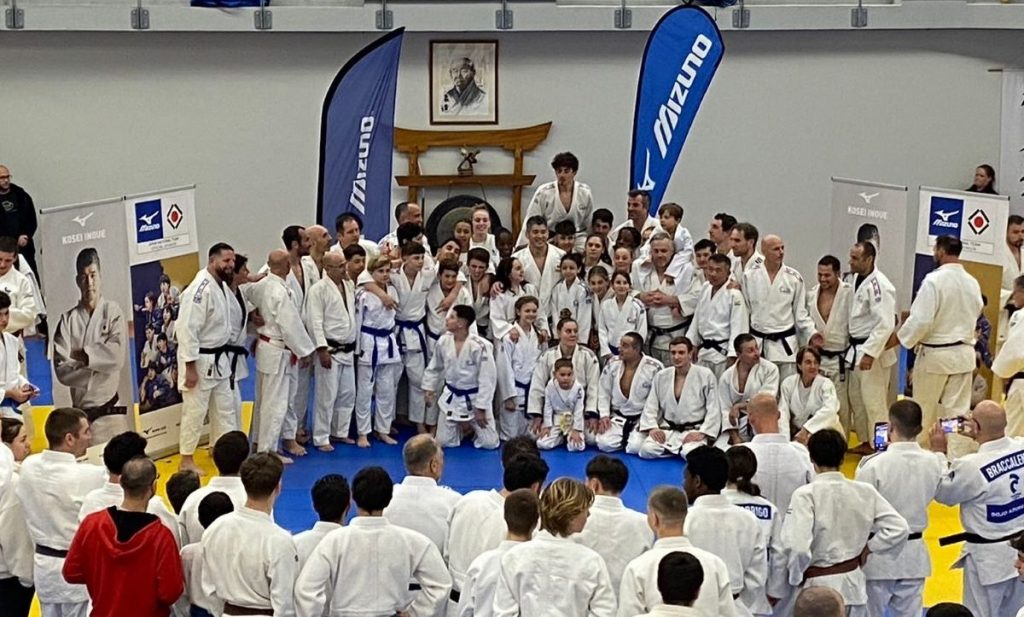
All the participants were avid, which I was delighted to see. I only wished I had had more time to provide additional detailed explanations on many points. It would require around three days at each venue to do justice to the content we were trying to get across.
This time we did not have that luxury. Yet, everyone was so enthusiastic. During our time together I kept thinking of one thing after the next that I wanted to say to them.
Judo as a Lifestyle: The Life Passion of Participants at Each Venue
As I have already noted, I visited four venues on this trip. If I had to name one impression I was left with from the clinics, it was the many older individuals wearing colored belts. Many wore brown, green, or yellow, and they were at all the venues.
If a judoka is wearing a colored belt, that means that he or she is a beginner or has been practicing judo for a few years. Some said they had some judo experience when they were kids.
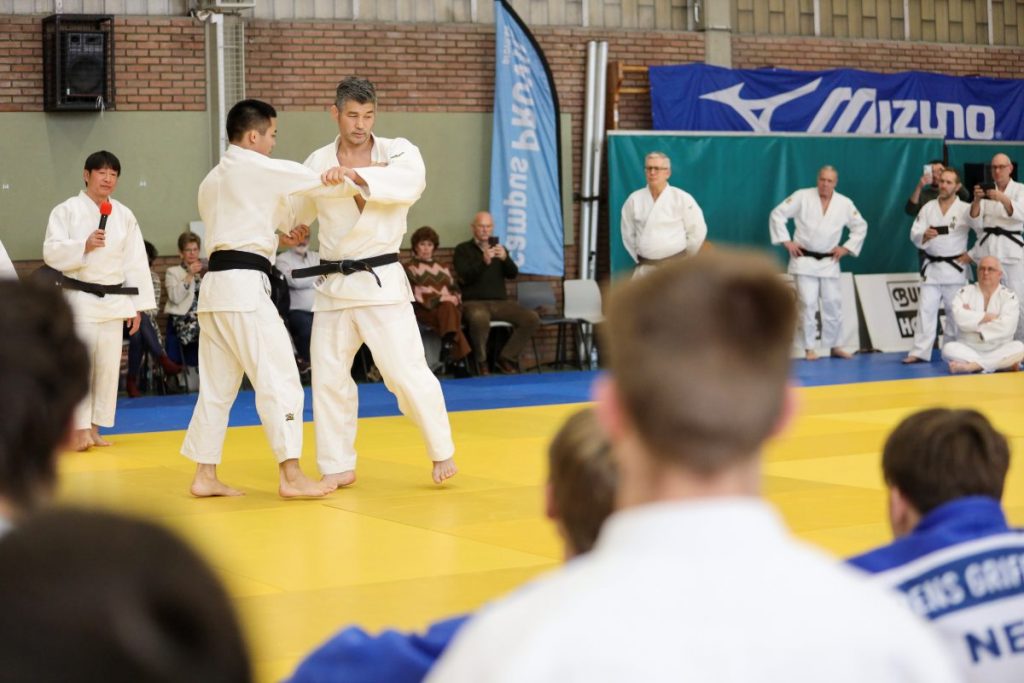
In Europe, a culture of lifelong participation in sports has taken root for promoting good health and enriching one's daily life. I'm sure many of you reading this newsletter have also elected to practice judo as your lifelong sport.
Of course, in Japan, too, some older people have taken up judo, but their numbers are very few. Seeing people tying on their colored belts during this trip brought home to me how deeply the culture of lifelong sports participation has permeated some societies. I thought it was just fabulous.
I also concluded that there is a lot that we in the world of judo can learn from Europe.
Learning New Lessons as an Instructor
During this trip, I was invited to act as an instructor. But conversely, I ended up being the one doing the learning. The time I spent at the clinics proved highly valuable and I enjoyed the experiences.
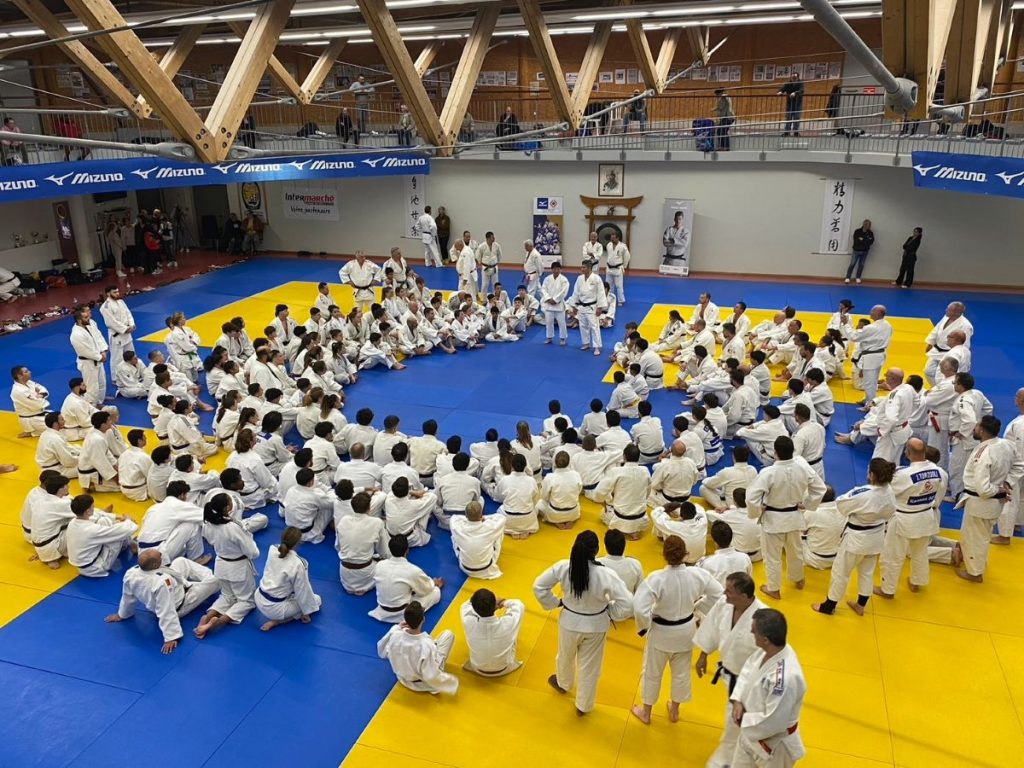
Although the countries I visited shared borders, each had its own unique culture and customs. And of course, there were many instances in which I felt the differences in national character.
Nevertheless, no matter the venue, we were brought together by judo. The sport allowed a large number of people to enjoy their time together. In that way, we reaffirmed the inherent power and value of sports.
In the future, if such opportunities appear again, I would love to participate to the greatest degree possible.
Finally, I would like to offer heartfelt thanks to all the local people who helped us during the trip.
RELATED:
- Kosei Inoue: Judo and Expanding Inclusivity in the World of Sports
- Uta Abe Honored as the World's Top Female Judoka
- Kosei Inoue: Reflections on Judo Summer Camps and Competitions
(Read the article in Japanese.)
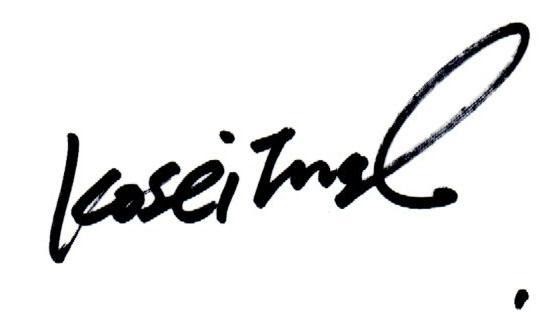
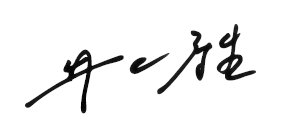
Learn more about the sport of judo and Kosei Inoue, former Olympic gold medalist and former national men's team judo coach who now serves in key positions for All Japan Judo Federation, on the website of JUDOs, a certified Japanese NPO. And find more columns by and about Kosei Inoue in English on JAPAN Forward and SportsLook.

Nagoya Basho Tournament Records
| Day | Opponent | Result |
|---|










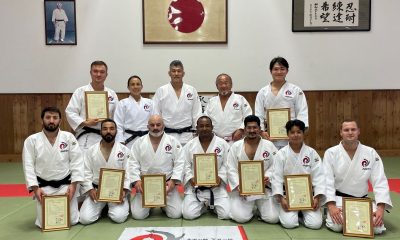

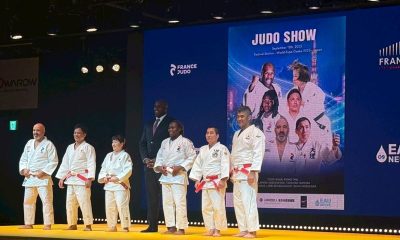



You must be logged in to post a comment Login